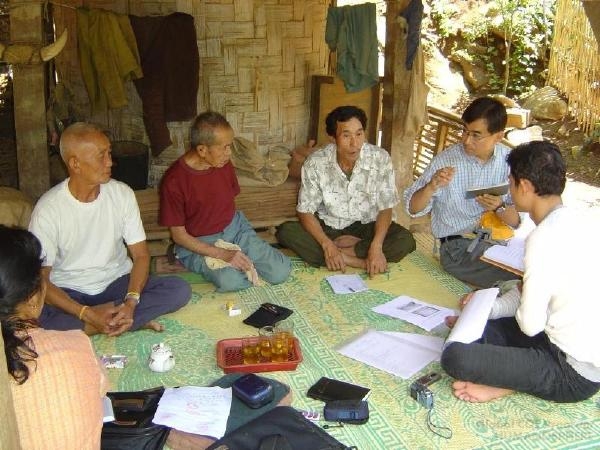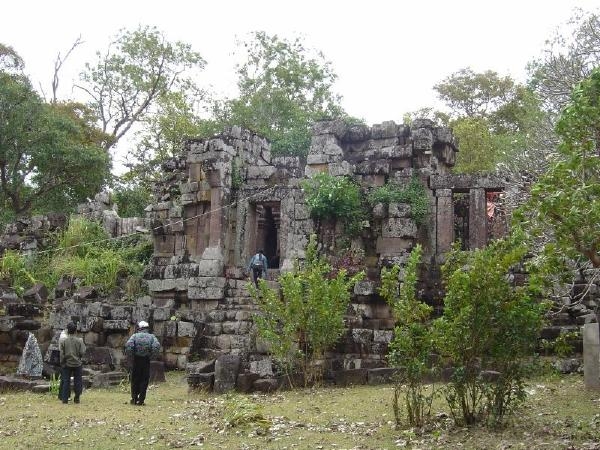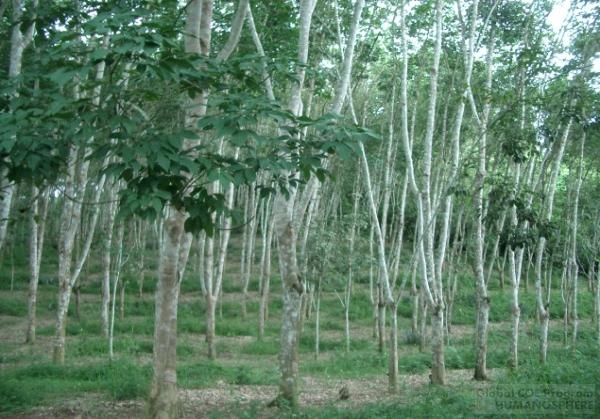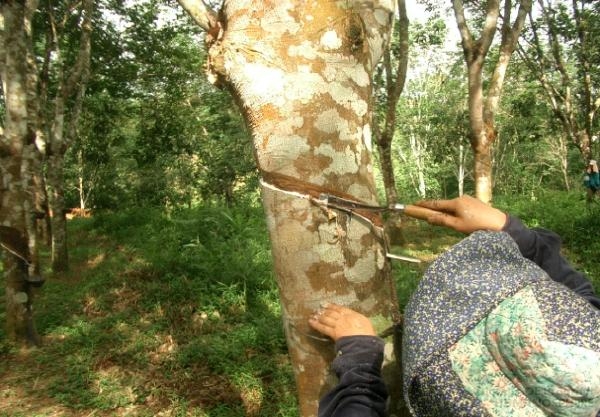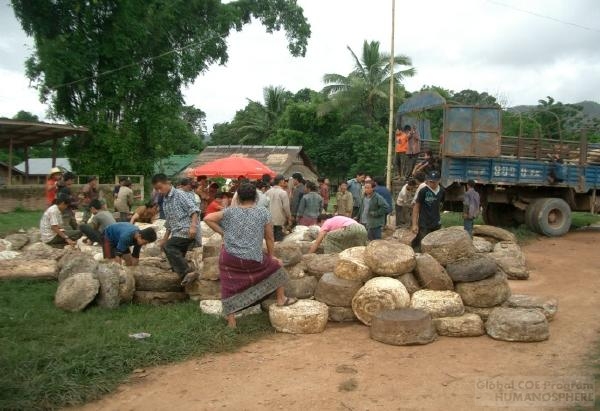"The Alternative value of Traditional Agriculture for Education, Research and Development″ (Laos Field Station)
Date: February 17-19, 2010 8:30-
Venue: FOA, NUOL, Nabong Campus
Organizer:Faculty of Agriculture (FOA), NUOL & Center for South East
Asian Studies (CSEAS), Kyoto University
Program for International Workshop on“The Alternative value of
Traditional Agriculture for Education, Research and Development”
Supported by the Toyota Foundation and Kyoto University’s Programs,
namely “Global COE Program: In Search of Sustainable Humanosphere in Asia and Africa” and “International Networking Project to Cope with
Natural Hazards on the Periphery of Bengal Bay.”
Counter Part (LaosFS)
National University of Laos
Faculty of Forestry
Faculty of Agriculture
Faculty of Social Sciences
During 1975 to 1995, the government of Lao PDR (GoL) ran three institutions that were considered to provide university-level programmes (the Pedagogical Institute of Vientiane, National Polytechnic Institute, and the University of Health Sciences). The GoL later united these institutes to found a university, called National University of Laos (NUOL) in June 1995. The first academic year (AY) began on November 5, 1996. NUOL has been divided into 10 faculties, several departments and study centers that offer higher education diploma, bachelor and master’s degree courses. The NUOL is the biggest higher educational institution in the country. However, presently the GoL has run 4 universities (NUOL, Souphanovong University, Champasack University and Scientific Health University) and 5 pedagogical colleges, and promoted several private colleges in a whole country.
Kyoto University, Japan and National University of Laos, Lao PDR have cooperated in several activities on area studies through faculties of NUOL such as Faculty of Forestry, Faculty of Agriculture and Faculty of Social Sciences.
The Faculty of Social Sciences (FSS) is the only highest social sciences institute in the country. The FSS first was combined with the Faculty of Social Sciences and Humanities which was created together with the foundation of NUOL from the decree of the Prime Minister No. 50/PM dated 09/06/1995. In year 2000, the Faculty of Social Sciences and Humanities was then divided into two categories as the Faculty of Social Sciences (FSS) and the Faculty of Letters (FOL) according to the decree No. 87/PM dated 20/06/2000. Presently, FSS has opened six baccalaureate degree programmes below: 1) Geography and GIS, 2) History and Anthropology, 3) Political Science, 4) Tourism, 5) Hotel Management, and 6) Sociology and Social Development programmes.
Research Topics(LaosFS)
Laos is one of the few places in Southeast Asia where a nature remains in abundance and on the global level it is very important in terms of biodiversity conservation. There is thus strong international pressure to conserve its natural resources, whose use is being tightly restricted, producing major changes in the livelihoods and lifestyles of the local people. Conflicts between policies based on the global perspective and the way of life of the local community have come out in the open. At the Laos Field Station we are doing field-based research on the relationship between the local community and use of natural resources in the face of these big changes.
Title: Local Natural Resources Use and its Transformation in Laos
Research Team:
(1) Dr. Anoulom Vilayphone (Faculty of Forestry)
(2) Dr. Lamphoune Xayvongsa (Faculty of Forestry)
(3) Dr.Takeda Shinya (ASAFAS, Kyoto University)
Status: On-going
Title: Management of Aquatic Resources and Inland Fisheries in the Ou River Basin, Northern Lao PDR
Research Team:
(1) Mr. Phouvin Phousavanh (Faculty of Agriculture)
(2) Dr. Iwata Akihisa (ASAFAS, Kyoto University)
Status: On-going
Title: The Collection and Conservation of Local Documents and Oral History in Lao PDR
This research project aims to search for and collect local documents and oral history in Houaphan province and Savannakhet province, Lao PDR in FY 2007- 2010.
Research Team:
(1) Assoc. Prof. Ms. Phiengsy Sensathit (FSS)
(2) Mr. Yoshiyuki Masuhara (ASAFAS, Kyoto University)
(3) Assoc. Prof. Dr. Nivone Saynyavong (FSS)
(4) Mr. Souvannahong Lattanaphim (FSS)
(5) Mr. Ketsadong Sylithone (FSS)
Status: On-going
Ban Muang Poua, Viangsay District,
Houaphan Province (May 2008, Mr. Yoshiyuki Masuhara)
Huan Hin (Stone House), Sayphouthong District, Savannakhet Province (Jan. 2009, Mr. Yoshiyuki Masuhara)
Title: Quantitative and Qualitative Impacts on the Sonic Environment; Toward the Soundscape Design of Luangprabang (world heritage city), Lao PDR
This research programme intends first to conduct surveys in the town as to the present state of sonic environment by recordings sounds which characterise the town and represent the local residents’ everyday lives. The programme also tries to find the sounds related to the history of Luang Prabang and the people’s memories of the past community lives. Then CDs of Luang Prabang Sounds will be composed. The programme in the end suggests, through collaboration with the local authorities, public policy of tourism to improve and preserve the sonic environment of Luang Prabang on the basis of the surveys and fieldworks.
Research Teams:
(1)Prof. Dr Kozo Hiramatsu (ASAFAS, Kyoto University)
(2)Assoc. Prof. Dr. Khammany Soulidet (FSS)
(3)Assoc. Prof. Dezanourath Sendoungdeth (FSS)
(4)Assoc. Prof. Salemsak Phabouthdy (FSS)
(5)Mr. Saychai Syladeth (FSS)
(6)Ms. Monic Anousaya (Lungprabang staff)
(7)Mr. Nouphanh Keosouda (Lungprabang staff)
(8)Mr. Sengthong Luyang (Lungprabang staff)
(9)Mr. Phonekeo Phatthana (Lungprabang staff)
(10)Mr. Vuyang Yangxengyang (Lungprabang staff)
(11)Mr. Aloun Manosane (Lungprabang staff)
Status: On-going
Title: The Economic Influences of Para Rubber Plantations on the Livelihoods of Local People in Northern Laos; Success and Peculiarities of the Pioneers
This research aims to reveal the process of planting rubber trees, its economic influences on the livelihood of local people, and the key issues to success in the first village to plant them.
Research Team:
(1) Mr. Shinichi Kawae (Graduate Student, ASAFAS, Kyoto University)
(2) Dr. Shigeo Kobayashi (ASAFAS, Kyoto University)
(3) Dr. Yasuyuki Kono (CSEAS, Kyoto University)
(4) Dr. Koichi Fujita (CSEAS, Kyoto University)
Status: On-going
Para Rubber Trees, Luang Namtha District, Luang Namtha Province (Jun. 2008, Mr. Shinichi Kawae)
Rubber Tapping, Luang Namtha District, Luang Namtha Province (Jun. 2008, Mr. Shinichi Kawae)
Selling Rubber Latex in a village, Luang Namtha District, Luang Namtha Province (Jun. 2008, Mr. Shinichi Kawae)
Members(LaosFS)
Kyoto University
- Hiramatsu Kozo(ASAFAS)
- Iwata Akihisa(ASAFAS)
- Masuhara Yoshiyuki(ASAFAS)
- Takeda Shinya(ASAFAS)
- Ando Kazuo(CSEAS)
- Yasuyuki Kono(CSEAS)
- Koichi Fujita(CSEAS)
- Kayoko Yoshida(ASAFAS)
- Kazuyo Mori(ASAFAS)
- Shinichi Kawae(ASAFAS)
National University of Laos
- Houngpheth Chanthavong (Faculty of Forestry)
- Anoulom Vilayphone (Faculty of Forestry)
- Lamphoune Xayvongsa (Faculty of Forestry)
- Phouvin Phousavanh (Faculty of Agriculture)
- Saychai Syladeth (Faculty of Social Sciences)
- Saithong Phommavong (Faculty of Social Sciences)
Links(LaosFS)
- 21COE Laso FS
http://areainfo.asafas.kyoto-u.ac.jp/japan/activities/fsta.html#9 - National University of Laos
http://www.nuol.edu.la - National Agriculture and Forestry Research Institute
http://www.nafri.org.la - National Statistics Centre
http://www.nsc.gov.la - Bank of the Lao PDR
http://www.bol.gov.la

